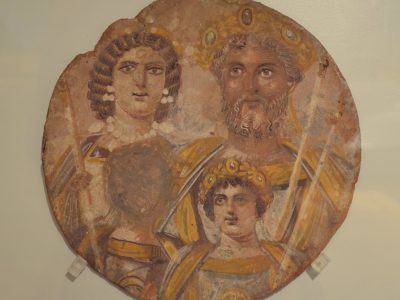To my dearest Classics final paper and exam,
This all began when I discovered a new fondness for the ancient world in the Roman Family Law course last fall. From Augustus’ claim as the first emperor of Rome to the end of the Roman Empire, their laws continued to suppress specific classes of Romans.
I started the semester in a music theory course; however, I quickly realized I was in over my head and dropped out of the class. Now, I had to frantically search for a new course to maintain the 15 credits and came upon a classics course called Roman Family Law.
It seemed interesting enough through the description so I signed up and attended the first class the next day.
Roman society and the ridiculous inequality in the legal system between men and women, husbands and wives immediately captivated me.
Throughout the course, we learned about adultery and the absurdity that men would never be accused for adultery but women could be, and how fathers could kill daughters for catching their them in the act of committing adultery in their home or in the home of their son in-law.
There was also the idea that women were intellectually incapable of doing anything themselves besides being a baby–producing machine. Women were easily disposed of; if one died through childbirth or disease, the husband would quickly move on to the next available woman who could give them an heir to their family name.
And let’s not forget that the minimum age women, well girls really, could get married. Girls could marry at the young age of 12. Just imagine, 40-to-50-year-old men marrying 12-year-old girls, some not even in puberty yet and expected to start bearing children.
As the semester went on, we began working on a research paper as part of our final. My professor separated the paper into three parts: research proposal, rough draft and final draft. In between these deadlines we could still go to her office hours and get feedback on our papers as we wrote them.
The eight-to-ten-page research paper had to be on a topic pertaining to the family dynamics and laws in Ancient Rome. I chose to write my research paper on divorce in Roman society.
Women were forced into marriages from a young age by their fathers for political alliances or some other profit. This stirred curiosity within me. Were women were able to get a divorce from their husband? I researched the steps they needed to take to proceed, and how their social and familial life would be affected.
I did all the research needed for the rough draft and submitted a partial paper accompanied by my outline to my professor. My course-load increased around the time I received any feedback on my rough draft.
The final weeks of classes came and went, leaving me in the space between classes and finals. We call these study days. This was the first time that I could really sit down and review the notes and comments from my professor. Not having homework to worry about gave me this new motivation and determination to finish this paper as quickly as possible while still creating a quality piece of work.
In the beginning, I typed ferociously, my words eating away at the pages until I hit page six. At this dreadful moment, I completely went through my outline and explained each of my points thoroughly. I remember staring at my computer screen shaking my head and muttering “no, no, no, no.” I couldn’t believe it, I was so sure that I would reach the minimum of eight pages.
Now, I had to start going back into all of my sources to find more supporting arguments. The process of discovering new points and adding them to my paper with my commentary cost my basically a day. A DAY. During finals season, a day can determine whether you get an A or you bomb the final.
But it was fine. At the end of the day I got it done. Once I pressed the submit button, I literally heaved a sigh of relief. I felt a weight on my chest rise as I slouched down in my desk chair.
You know how students finish one final and then shove that knowledge aside, making room for information from another class? Well those students were lucky. If only I had a final paper. I would have been to do just that, but that wasn’t the case.
I still had an in-class finally take three days after my paper was due. In between these two days, I had two finals on the same day—Spanish and Introduction to Political Science.
So you can see the difficult I had placed in front of me.
I had to toss aside information from my Roman Family Law to then study for two other classes that were in no way similar to then toss those aside. Then I needed to scramble the pieces back together for my Classics course.
There were certain instances when I thought that my predicament was so unfair and that I didn’t know how I came to deserve this. These moments were when my frustration almost took over and I wanted to fling my computer and notebooks across the classr
oom. I felt just so tired. My brain hurt from trying to cram every detail in there, filling every crevice. I also felt homesick for my family, home-cooked meals and my bed. I missed my comfortable full-sized bed while sleeping in a relatively hard twin-sized bed.
With all these emotions swirling within me, I just wanted to get these finals over with. You can imagine my irritation with not having only a final paper but also a final exam.
Since I am obviously living to tell the tale and sharing this story, I did survive my toughest finals season to date. I know as I progress throughout college, each finals season will continue getting more difficult. As an Ancient Civilizations minor, I need to get used to the fact that now 50 percent of my grade will consist of a final paper and a final exam.
Sincerely,
A Classics survivor



















